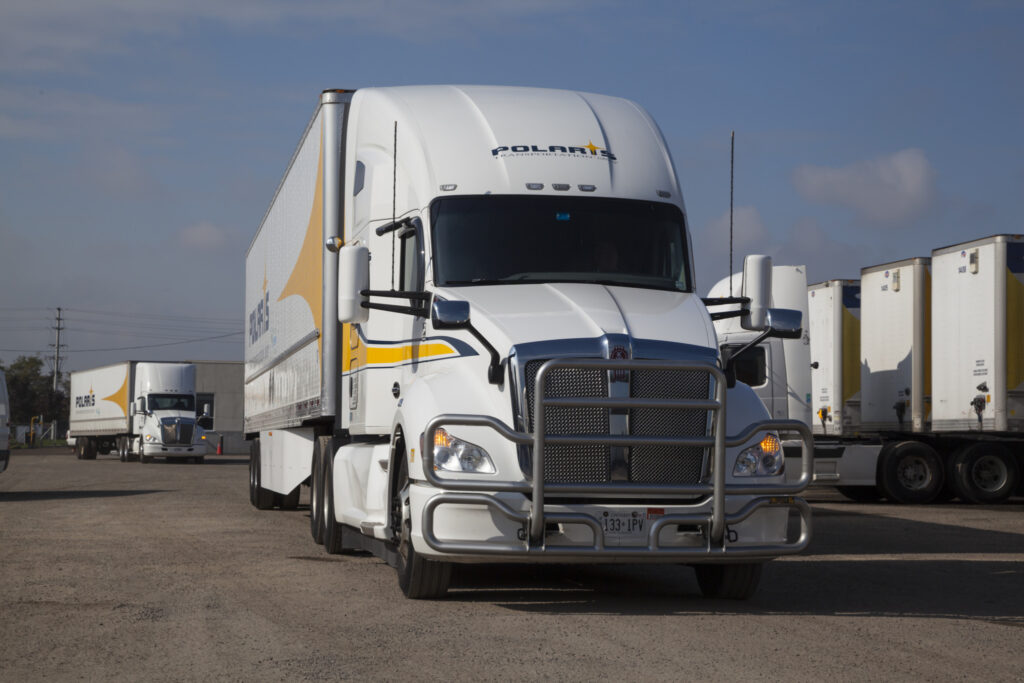Fleets consider making telecommuting permanent
TORONTO, Ont. – Just a few months ago, working from home was a remote dream for most people. Today, working remotely is the reality for millions, and some Canadian fleets are already considering making it permanent, post-Covid-19.

The telecommuting experience has been so positive for TFI International, the trucking and logistics giant is considering a hybrid model for the future, executives said Wednesday.
“So basically, working from home two days a week and three days at office; and the following week, three days at home and two days at office. That’s what we’re considering.”
– Sylvain Desaulniers, vice-president, human resources, TFI International.
“So basically, working from home two days a week and three days at office; and the following week, three days at home and two days at office. That’s what we’re considering (at the head office in Montreal, Que.),” said Sylvain Desaulniers, vice-president of human resources at TFI.
“That is our model for the future. Again, it can be reviewed, but that is what we are considering,” he told Today’s Trucking.
Eighty percent of TFI’s 175 administration employees across Canada are currently working from home full time, Desaulniers said.
CFO David Saperstein said the company is very pleased with the transition, and very pleased with the productivity.
“That is why we are considering making some changes to the way that we operate in the future,” he said.
Saperstein added that this will allow the company to reduce some of its real estate-related costs over time.

Virtual trucking company
The office-to-home transition was a breeze for Polaris Transportation Group, based in Mississauga, Ont., because of the big investment it made in artificial intelligence, robotic processing and automation.
“Working remote was a very easy thing for us to do. We essentially created a virtual trucking company in less than two days,” said president Dave Cox.
About 100 Polaris employees now work remotely.

“So, after Covid-19, I envision more Polaris people working from home,” Cox said, quickly adding that telecommuting is not for every one.
“We have people working from home that prefer to be back in the office because they need that separation from personal life and work life.”
Going forward, Cox said, his executive team will try to figure out what is the best choice.
“There is a lot of thought that needs to go into it.”
Experience in managing drivers
Leanne Quail, operations manager at Paul Quail Transport of Alliston, Ont., said working remotely can be a blessing, but it also comes with a different set of stressors that companies need to be aware of.

“Remote employees are removed from the direct culture, and can have concerns about missing key moments and being left behind,” she said.
Quail, however, stressed that the comfort level of trucking companies for remote workers should already be there as the bulk of employees – drivers – are remote workers.
“We have been creative in effectively managing them,” she said.
No one-size-fits-all solution
Trucking HR Canada doesn’t believe there will be a one- size-fits-all solution for the industry.
“What we have been hearing is that many fleets are looking to have their staff return to the office at least in some capacity,” said Craig Faucette, director of policy and programs at Trucking HR.
“However, many have also found that there have been advantages with staff working primarily from home as well. We have learnt that some roles can work successfully from home as staff have responded well to the changes.”
Faucette said employers will need to ensure that their polices around confidentiality, leave time, remote working, are updated to accommodate the “new normal”.
“I think what Covid-19 has taught us is the importance for employers to offer flexibility where possible.”
Global perspective
Global Workplace Analytics (GWA), a research and consulting firm based in San Diego, Calif., estimates that 25% to 30% of American employees will work from home multiple days a week by the end of 2021.

As of now, GWA estimates that 75 million U.S. employees hold jobs that are “compatible” with remote work.
“The sweet spot in terms of preference is two-and-a-half days a week in the U.S. Globally, it is two days a week,” said Kate Lister, president of GWA.
Those numbers are from the Global Work-from-Home Experience Survey of 3,000 employees GWA conducted last month in partnership with the workplace services firm Iometrics.
Lister said the poll showed that most people feel they perform equally well at home as they do in the office in both solo and group work.
“Studies over the years have all pointed to increased productivity, and the remnant of people worrying about it are managers that don’t know how to manage people from a distance,” Lister said in an interview.
She believes the pandemic-induced transition is probably the tipping point for remote work.
“The fact that the majority of online shopping takes place during office hours tells you how well counting butts in seats is working.”
– Kate Lister, president, Global Workplace Analytics.
“Fifty-seven percent of the people that are working from home right now never did it before,” Lister said.
“And, they’re still saying that they are productive, less distracted, Basically, it is working well.”
Lister said counting butts in seats doesn’t make sense anymore in a globalized society where people are more mobile.
“The fact that the majority of online shopping takes place during office hours tells you how well counting butts in seats is working.”
- This story has been updated with comments from Paul Quail Transport.
Have your say
This is a moderated forum. Comments will no longer be published unless they are accompanied by a first and last name and a verifiable email address. (Today's Trucking will not publish or share the email address.) Profane language and content deemed to be libelous, racist, or threatening in nature will not be published under any circumstances.
I’m a driver and my company won’t let me work from home. What should I do? Should I quit? Which trucking companies allow driver to work from home?